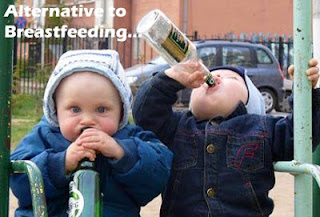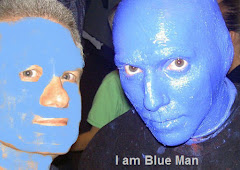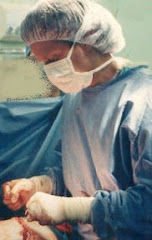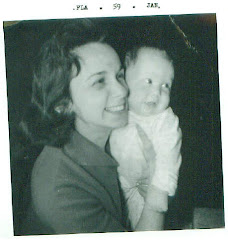Friday, December 28, 2012
Learning to Fly
I don't want to be dramatic, but that is essentially what often happens in residency training programs where the instructors are as lost as I am. Professional medical educator often make assumptions and are so lazy they can't begin to solve the problems at hand and truly mentoring and training future medical professionals. Now I know they are all not like that. And I know many who are extremely good, but I am dismayed at the number of inferior faculty members in medicine today.
On several occasions I've been "handed the keys" without a word of education, mentoring, direction or anything resembling teaching and told to "start the engines". Nothing quite 747ish, but certainly in a class I've never flown before. Assumptions of my skills, knowledge, education, morals, ethics, decision making, memory of clinical practice guidelines (checklists to the pilot) etc have been largely "assumed" inaccurately and brushed off with a "well you went to medical (flight) school, didn't you?" I've been careful, I've plodded through each situation with care, but not without error and certainly not without trauma (to me especially). The system, at least my part of it, is very broke.
If other industries worked as ours does, the country would be in shambles. Planes would fall out of the skies as pilots, who never practiced on a simulator or in an otherwise safe environment, muddle their way through piloting encounters. Vehicle accidents, caused by police/fire/EMS driving fast to calls, would be common as drivers muddled their way through it without the benefit of an emergency driving course or similar. You get the idea. We gain expertise by mentored practice and infusion of knowledge working first in safe environments with simulators, training courses, etc. Not on people.
This is silly. This is dangerous. It was the best of time, it was the worst of times. And I have to go back to the planes tomorrow. I doubt I'll even be greeted by a hello, let alone meaningful teaching of any kind. But I'll do my best to park the 747 and not hurt anyone. Particularly me.
Friday, December 14, 2012
Public Violence
As time begins to reveal the true scope and causes much discussion will ensue about how to protect public buildings in the U.S. from this type of incident. Imagine a mentally unstable individual, dressed in camo or black fatigues, with a bullet proof vest on, armed with several weapons, gaining entry into any public building...determined to do harm. What really must we do to protect many from the one or two? This happens so quickly that even with armed officers on the premises, tragedies like this will happen.
I don't even pretend to have any prevention answers but the answer is not in gun control. We are well beyond that and this is more about people control. The real prevention must come at getting better at hearing and heeding the warning signals that may have preceded this and other tragedies. Threats, notes, comments, texts, tweets and other communications often precede such events and foretell that "something" is going to happen. Prevention is pro-active and requires investing time and resources. But it may be our best hope. Although I realize, there is no real way to totally prevent this from happening ever again. And likely it will. So, so sad.
My "parental" heart goes out to all those families who are grieving the very pre-mature loss of their children as well as those who have lost adult victims in this tragic event. CNN is reporting "closer to 30 killed at school" but it is still unfolding and the victims families are in the process of hearing for the first time that their child won't be coming home.
Brain Food
Thursday, December 13, 2012
And So It Begins, Again
I'm not backward, ignorant or a naive trouble maker. I'm not psychotic, paranoid or anxious. I'm not angry and have no grudges. But the system I return to is broke, bad. And I hope at the end of the day, everyday, I don't hurt someone.
Monday, December 3, 2012
End of Days

Tuesday, November 27, 2012
Inversely Proportional
There really is no need to memorize the genus and species of microbes, or the pharmacological reactions and actions that can be easily looked up. Portable technologies and the references they provide have changed the game in clinical practice. The world of information is at our finger tips and accessible. I don't need to know the Krebs Cycle. I need to know how to use it in taking care of my critical patients though. When will medical education move from memorization to that of focus on understanding with the user end point in mind....medical practice.
The use of information is much more important that memorizing it. Yet that is the emphasis found on exams in medical school and on national boards. The emphasis on memorization in many ways determines our future by selecting out memorizers from users of information for residency based on test scores.
The reality is that medicine is controlled by memorization and performance on exams, guided by results on Step USMLE. Performance on that exam is, for the most part, the determining factor in residency selection. And that system isn't going away easily with the multi-millions that system makes. Exam, boards and pimping performance (hallway pop quizzes perpetrated on unsuspecting learners) is the core of how medicine teaches and expect learning. But is it really learning at all? Is it really providing insight and apprenticeship to the insight of knowing how to apply the knowledge memorized?
We need more formative and summative assessment that is "application" based and less memorization based exams in medicine. We need a return to a real apprenticeship system that values moving knowledge from teacher to student in clinical practice with application in mind. As a colleague recently wrote, "medical education is failing us" all, both practitioners and patients. It has certainly failed me and gutted my passion on so many fronts.
Wednesday, November 21, 2012
Terror : Part of Public Health
That's sort of what happened in Tel Aviv today. I don't have a dog in this fight. I have no family or political ties to Israel or the Gaza Strip. But it's difficult to imagine living that way; living the reality that rockets are falling from the sky and buses can blow up at any time. This is the reality in Israel today.
And that made me wonder why my Syrian born colleague (a foreign/international medical graduate or FMG/IMG), gaining a great future in medicine training in the U.S., pondered out loud about the "villain and murdering Israelis". Why is it that some believe there should be equal mayhem and death on both sides for there to be a fair fight. That's what he explained.
So I asked our campus police, an officer at a nearby table at lunch..."Does engagement with a terrorist require that the police lose as many officers, killed, as the terrorist they confront on the street?" He laughed. And I already knew the answer. Defense of freedom, justice, democracy and rule of law does not require fair. It requires "superior force" to stop the aggressor. Center mass stops. That is what the hospital police officer said.
It is regrettable that modern terrorist organizations use civilians as shields to deploy arms. As careful as any protective force can be, injuries and death to civilians will then happen. I hate that part about modern warfare viz. a vie, Iraq, Vietnam, Afghanistan etc etc. It's the reality of urban combat and there are no easy answers. But let's not confuse who the aggressor and who the protectors are in any such conflict.
My Syrian colleague and I will remain colleagues and I trust him not to blow up the hospital. I'm not sure my colleagues in Tel Aviv today feel the same confidence in their neighbors. I pray this Thanksgiving for peace and rational clarity at what is really happening in the Middle East and in many corners of the world. I'm thankful for many things, but in this day, I'm very thankful for "superior force", a center mass mentality and safe bus rides to the mall.
Saturday, November 17, 2012
Some Stuff I Learned & Read

Tuesday, November 13, 2012
Professional Education
Happy Diwali Fall Festival
सभी मेरी कत्थई भाइयों और बहनों के लिए हैप्पी दीवाली!
For Hindus, Diwali is one of the most important festivals of the year and is celebrated in families by performing traditional activities together in their homes. Diwali marks the attainment of moksha or nirvana by Mahavira in 527 BCE.
Studying and working with many Hindus these past years, Diwali has become part of my Fall Thanksgiving celebration. We should all attain Nirvana and celebrate life and "colors and many sparkles" around us.
Happy Diwali - हैप्पी दीवाली
Gender Regrets
Where I am, medicine is a man's world. It's dominated by male attendings and women who think they are men or have to make pretend they are periodically. So when a female joins the ranks, you tend to notice. Such was the case recently when a new medical student joined rounds with us boys.
There she was, 5 foot something, with curves from her pony tail to her painted toes all reddish-blonde with a cute Southern accent. All the boys made sure they mentored, led, guided and pimped her. She got more attention than the last Krispy Kreme donut in the nurses break room. She remembered kool little factoids about medicine from her recent reading and studying for Step 2 and was sure to walk briskly with the attending so everyone behind could see her, uh, ya...see her. The boys loved it. I didn't get spoken to, pimped or looked at the whole day. I got no new patients and didn't have to present the few I had. There wasn't time. She was there.
So my regret? I regret not being born reddish blonde, 5 foot something, with curvaceous curves, a cute Southern accent and a decent memory for medical text factoids. Maybe my next life?
Thursday, November 8, 2012
Uncertain Certainty
A Year Inside a Medical Residency
Wednesday, November 7, 2012
Morphed Discussion, From Here to There
Tuesday, November 6, 2012
Models Abound Elsewhere
The real bottom line is providing the best care, with the best outcomes to everyone while not spending ourselves, nationally, to disaster. I get that this is not easy, because it's really not. But I see clearly that much of it emanates from antiquated institutional policy providing misguided medical education to poorly chosen future physicians. The system is thick with politics (no matter what you call it) and won't change easily if at all, without strong outside intervention....outside of academics, medical associations, politics and the pharma/insurance mega beast.
What do all the countries who do better have in common? Centralized, one payer medical systems funded by national health taxes or equivalents. They also free institutions and individual physicians from "trying to figure it out daily" and provide a framework for both clinicians and patients to flow into. We need strong reforms in this area in the U.S. and the models in other civilized countries is clear. Not easy, but certainly clear. And they have been doing it for much, much longer than we. Why can't we fast forward, and take back medicine to it's rightful place in society?
Sunday, October 28, 2012
Breast Feeding Public Service Announcement
Pose and Strut
Back to studying. I'm sure I'll get pimped about some useless topic on rounds.
Oh hell, I'll just let the overachiever answer it.
Wednesday, October 24, 2012
Bad Rules
He returns to work and tells everyone about the "stolen" scrubs he saw everywhere (We have a anti-stealing scrub device that checks out scrubs to each person by their ID badge)
Decides to forbid all scrubs outside the hospital due to possible infection spread and how would it look to outsiders who get surgery and have seen the scrubs in the outside dirty world (they are mostly unconscious or can't remember who they saw, let alone what they were wearing)
So another dumb rule. Particularly when you see surgeons wearing their horse dung covered boots with no covers into the OR for surgery. It's shocking how retarded this system can be sometimes.
Sunday, October 21, 2012
Just do it!
I cannot do everything, But still I can do something;
And because I cannot do everything,
I will not refuse to do the something that I can do.
Godly Healing
- Practicing compassionate presence—i.e., being fully present and attentive to their patients and being supportive to them in all of their suffering: physical, emotional, and spiritual
- Listening to patients' fears, hopes, pain, and dreams
- Obtaining a spiritual history
- Being attentive to all dimensions of patients and their families: body, mind, and spirit
- Incorporating spiritual practices as appropriate
- Involving chaplains as members of the interdisciplinary health care team
Friday, October 19, 2012
Confused
I have no clue where to go on the first day, who to report to or what to wear. Sadly, this isn't the first time and more likely the result of a real problem of too many chiefs, too little communication between them and individual "kingdoms" of power, rules and processes that are not easily given up.
Uniform rules? Appropriate training and instruction? Clear failure and success paths? Adult educational theory integration? Humility? Compassion? Recognition of....? Oh never mind. This has been broken for way to long and those in charge don't know it's broke, have no motivation to fix it, and are way to ego inflated to even care.
So we just do what we have to do to survive it, and make sense of it long after we leave with our dysfunctions into the real world. Is it any wonder that the average physician leaves his first job within five years? When you leave residency this messed up about organizations, it's no wonder at all.
So I'll go to wherever the wind takes me on the first day, and I'll likely have to apologize to someone for my error, confusion and hysteria. Better to ask for forgiveness later than ask for help now. And besides the former is way more fun.
Shame! Self-stigmatisation as an obstacle to sick doctors returning to work
But I see it everyday. Sick, sick clinicians coming to work out of pressure to do so...to man-up (or woman-up) and come no matter what. I'm sure at least one patient has been affected directly or indirectly by a "sick" physician in training.
A small study that looked at doctors returning to work after grappling with physical or mental illness found that those physicians perceived a lack of support from their colleagues in a recent BMJ publication: http://bmjopen.bmj.com/content/2/5/e001776 . The study completely confirms my gut feelings that this phenomenon exists and is a real problem in U.S. medical training programs today.
But even those providers that practice evidence based medicine are unlikely to follow evidence based evidence as to themselves. It's one of those paradoxes in the way we practice and teach the practice of medicine to others.
I guess for the moment I'll man-up and despite my fever, sinus infection, recent outbreak of cavitary pneumonia and pustular rash...I'll go back to work in the AM. Wouldn't want to be seen the weakling among my strong, virile colleagues would I? No worries, I'll wash my hands.
Residency Causes Insulin Resistance
In a small study published Monday in the Annals of Internal Medicine, researchers found that not getting enough sleep hurts the ability of fat cells to respond to insulin efficiently. So sleep isn't only about restoration (real "rest") but also abut cellular function and the processing and utilization of glucose.
We just don't get enough sleep in training. There is no time to actually get restorative sleep when you work 80-100 hours per week. The hospital acknowledges that burnout among nurses is directly correlated with working more than 40 hours per week and monitors that closely. While I thought it was all about quality time with significant others, nutrition, and quality of life, turns out it's also about good sleep.
Fact is, any system of training that includes the hazing phenomenon of decreased sleep and lower quality of life only produces tired clinicians with a propensity to glucose intolerance. It hasn't worked so far to produce great physicians and more importantly may be the prime cause for physicians leaving the profession in record numbers with many remaining very unhappy.
To what extent it is about sleep, quality of life, and other restorative processes is largely unstudied, but I know now that all the fatigue I see around me isn't good for the person, let alone patient care. It's really time to stop the madness that is post graduate medical education in this country. Who knows; With some real effort to reform the system, maybe we'll actually improve the system.
Nah. I hallucinated there for a moment.

Wednesday, October 10, 2012
A Good Dementia
But I have noticed an "imprint" that happens after attending one of these functions for a drug in which I know not other in the class. When I go to prescribe a drug in that class, I can smell the food that was brought, and immediately think of (at least a photo) of the drug or label. So at some level, as hard as I might try to forget or ignore the hype, I may be more prone to wrote for that drug. That's not good.
My Escape Fire is likely to be, no more free lunches or dinners. I might actually lose a few pounds and stave off this metabolic syndrome I'm working toward. Maybe I'll even reverse my low grade dementia.
Tuesday, October 9, 2012
Awareness of Breast Cancer
Almost 40,000 deaths from breast cancer this year.
There are 1600 clinical trials going on in the U.S. for treatments.
5 year survival for localized (no spread) breast CA: 98%
5 year survival for metastatic breast CA: 24%
There are 229,000 new cases of breast cancer each year.
Men get it too...
1 in every 1,000 men will get breast cancer.
2200 new cases of male breast cancer each year.
400 men will die from breast cancer this year.
Monday, October 8, 2012
Too Late

Dress Code Blue
These ridiculous dress codes with no rhyme or reason have to go. We can't wear scrubs on certain days and in certain venues? Ties are mandatory in certain locations on certain days? Where is the sanity of the rules that have no basis in evidence.
Just the tip of the evidence iceberg: Scrubs were considered most hygienic by patient in a recent study of patient perception. Ties were found to be the most filthy and unrestrained ties increase transmission of infection causing bacteria.
We practice evidence based medicine (mostly).
How about some evidence based dress coding?

Saturday, October 6, 2012
Night Nurses
Friday, October 5, 2012
Days, Weeks like this

Git 'er dun!
And that my friends is the difference between a good education and a bad one; a good program and a bad one; a healthy training scenario and one filled with anxiety. Because in the end, we all want to do good and git er dun right. It's never a matter of someone wanting to screw up on purpose that I've seen.
With gentle guidance, direction, understandable objectives with failure and success paths understood and compassion nothing is impossible. With overbearing, angry, frustrated, information hoarding direction to "just do it" there is nothing but anxiety, and often, error. It's simple to see, very hard to change a culture that has "done it this way" forever. But then, that's why medicine is in the mess it is, filled with burnt out providers.
Thursday, October 4, 2012
Pink Awareness
In my life, you know who you are (don't want to violate federal privacy laws), and I love you. Fight the good fight!!...for the duck!
Wednesday, October 3, 2012
Mi Vida Loca Dots
I don't know what happened, you know. There was this dude. And I just got shot. Ya, I got a job you know. I buy and sell wholesale electronics from the west coast. Need a nice GPS doc? I got one for you later if you fix me up. Drink? Ya, a 40 a night. Hungry? No, I'm good. My old lady is bringing me some drive thru.
Crazy life? It's freekin insane.
If this is the crazy life, give me peace, cool, calm, and collected anytime.
Bowties, cool?
But then, it is a wonderful form of infection control. I can't even imagine what would culture out of one of my clinical long ties that's never been washed. Like the stethoscope, the tie is a wholly neglected item physicians wear that is a cesspool carrier of bacteria, viruses and assorted parasites. So the answer? Ban ties completely. No ties in a clinical setting, ever. Not necessary. Frankly dangerous.
Culturing ties....I think I have my research project for residency.
Tuesday, October 2, 2012
They Do Get Better
The most gratifying experience for me is to see someone progress from completely debilitated, totally dependent on medical care professionals for life and function, to walking out of the hospital better when they came. Having just experienced that, I'm elated to know that for the patient, the system often works just fine. And that is the saving grace of working in this often chaotic field. It's stressful, emotionally draining, taxing on the mind body and spirit at times for those that work in it...but in the end, if the patient benefits and walks out with greater healing than if he'd stayed at home, it's very gratifying.
And so was Ms. H. Mind and body totally dependent on us when we first met almost 3 months ago. And then yesterday, hugged me goodbye and thanked me for my little part in the process called medical care. Then I watched intently as she exhibited the improved function we had sought and worked so hard for.
People really do get better after devastating insults to the body. And that hug...the best feeling I've had in a long, long, long time.
Sunday, September 30, 2012
Abs Suffer
P.S. Not the abs I aspire to get, but since she won Olympia 2012 Bikini, they are worth admiring. And I don't have a belly button ring either. Not yet anyway.
Smoking
And while we are at it, stop all government subsidy of any substance that causes lung cancer, COPD, asthma, stunts growth and makes you smell so badly.
Saturday, September 29, 2012
Sleep

Behold, La Differance'
Lovely
Dear Healthcare Professional;
This is to inform you that during the period blah to blah, blah you may have been exposed to at least one case of active tuberculosis. A case that you were [closely and intimately, crawling all inside his orifices and fluids] has been recently been diagnosed by the country health department and may have not been showing clinical signs and symptoms when you were involved in his/her care. This information is provided to you as a Public Health Service and we would recommend contacting your primary care provider for immediate testing, evaluation and treatment if necessary. If you have any further questions please contact this office immediately at the above number and refer to case #blahblahblah. Thanks very much for the work you do.
[Love] Sincerely,
[Your director of county health department extraordinaire]
LOVELY! How unique to my profession to advised of exposure to the little elongated yellow beast. Let's review. Mycobacterium tuberculosis is a nonmotile (meaning they do not move) rod-shaped bacteria. The common site of infection is the lungs because the bacteria are obligate aerobes, meaning that they require oxygen. The cell wall of Mycobacterium tuberculosis is mostly lipid which contributes to difficulties in staining and dyeing the bacteria for identification. The bacterium is difficult to kill because it is resistant to antibiotics and other treatments. And it loves to dig large caverns of space from normal lung tissue (cavitary) and fill them with gobs and blobs of fluide, semi fluids, pus, sputum and other hairballs.
Lovely. So not only do I work unimaginable hours working for mostly children supervisors with little or know knowledge of adult education or supervision, but I also have been exposed to a bacteria with a passion for my lungs. Poetic.
I'm off today for the first day in over two weeks. I think I'll just focus on the things neglected (besides my health) and go to the gym, shop for food to fill my empty fridge and wash sheets. If I think too much about this bacteria crawling around in my lungs, I'm sure I'll quit and go back to my drive thru job at the donut place. But then I could be exposed to flour or chocolate sprinkle inhalation. Lovely.
Unpredictable variability
But then there is the variability that is nothing but stress, created by the leaders of learning. That stress is caused by unpredictable, variable and ghostly expectations. The ones that largely live n the minds of those guiding the learning. Would it be so damaging to create success paths instead of failure paths at all?
Predictable variability is a God-send.
Unpredictable variability is a night mare
Friday, September 28, 2012
Stand there, just don't do something!
Anesthesiologist to me: Just don't stand there, do something.
10 seconds later
Nurse anesthetist to me: Don't help. Too many hands are just confusing.
I couldn't do anything at that point due to laughter. I think the anesthesiologist needs more coffee.
Pervasive Burnout
http://www.jonbarron.org/natural-health/medical-professionals-experience-work-burnout .
I don't know about the research. It's a little suspect.
I just left a drinking party with a whole room
full of interns and residents in medicine and surgery.
They all were handing their liquor in excess just fine. Happy about nothing mostly.












































